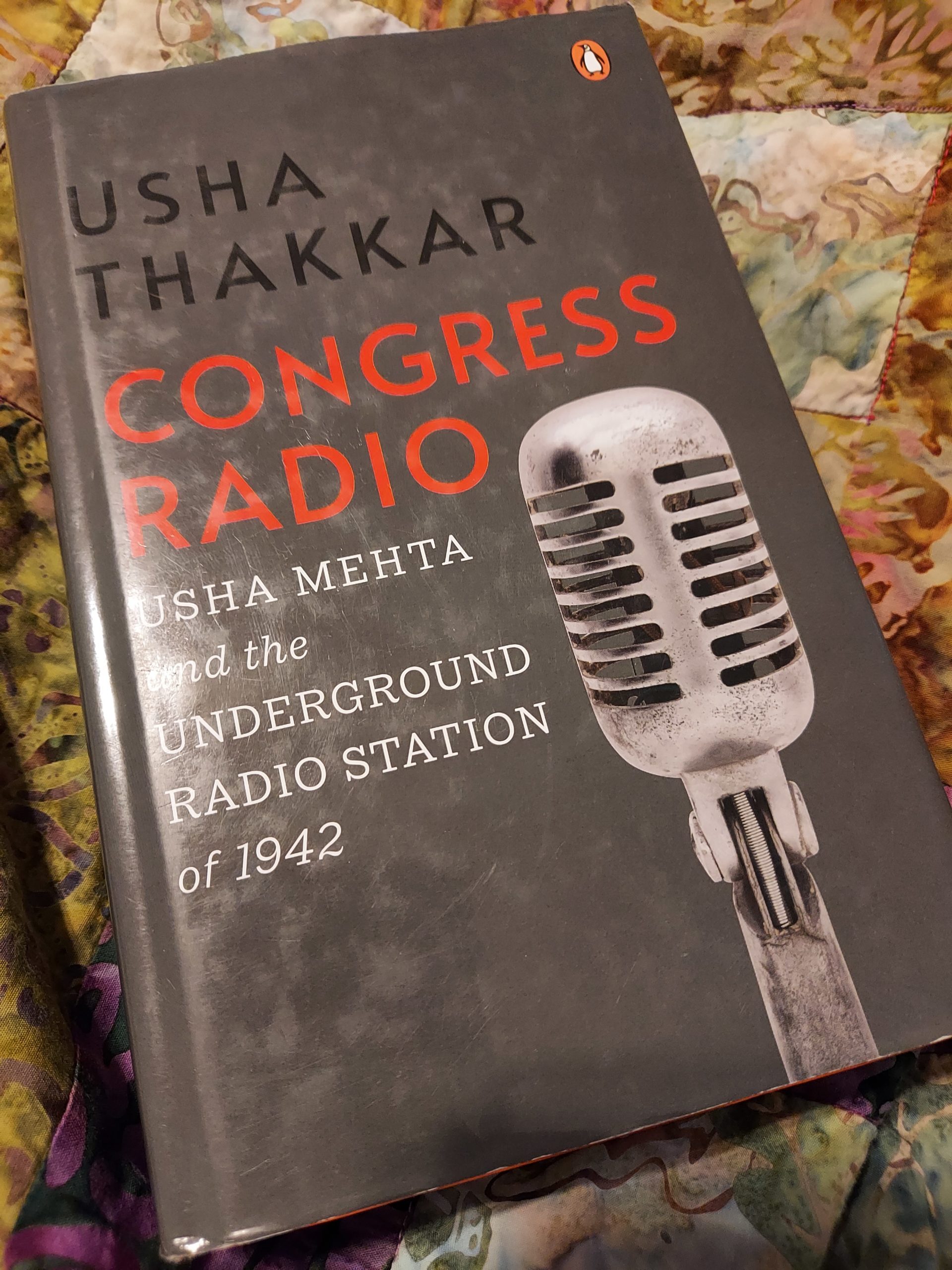1942 was an intense time in World History. World War II was rampaging across Europe and expanding beyond Asia and the Pacific. It would be easy to miss an important event trying to summarize 1942. Congress Radio: Usha Mehta and the Underground Radio Station of 1942 by Usha Thakkar is set in 1942 as well. However, the story of Congress Radio is not directly related to WWII, and it is one area of history that I had not heard much about India’s Independence from Great Britain. Mahatma Gandhi began the Quit India Movement in August of 1942 at the All India Congress Committee (AICC), and from it, a series of revolts and conflicts between the ruling British and Indian citizens occurred. Inspired by Gandhi and the lack of independent news, Usha Mehta, along with Vithalbhai Jhaveri, Vitthaldas Khakar, Chandrakant Jhaveri, and Babubhai Thakkar created the underground radio station they called Congress Radio.
Congress Radio begins with a summary of India’s independence movement. Thakkar runs through the significant events chronologically and introduces the major players for those who are unfamiliar. Even though the introduction discusses an emotional connection between the author, the subject, and the setting, everything is presented in a straightforward manner. In fact, the whole book reads much like a police report. Unsurprisingly, the appendix is full of police reports and court records. For those into minimally biased, court proceedings of important history or those who are invested in the history of modern India, this is a perfect read. For those wanting to be inspired by the bravery of young college students rebelling in the face of the world’s largest empire: there are pieces that exist in College Radio, but not in the main section of the book. Look for the inspiration and struggle in the court records, especially Mehta’s, and in Mehta’s recollections.
Usha Mehta (also referred to as Ushaben), was 22 when she helped create Congress Radio on August 14, 1942. It was often her voice broadcasted at 42.34 m. Interspersed between her reports of local uprisings were pre-recorded speeches of Gandhi and other leaders. Despite relocating the broadcasting location almost daily the organizers of Congress Radio were arrested and taken off the air on November 12, 1942. There was no mistaking Usha Mehta’s involvement, however, she chose to remain silent during the trial, even with solitary confinement and other coercion tactics. Mehta’s strength and Congress Radio’s dissemination of uncensored news were so vital to India, that it helped earn Mehta the Padma Vibhushan (Lotus Decoration), India’s second highest civilian honor.
Passion in the face of oppression. Strength in the face of power. Congress Radio has those moments of inspiration, but this is a book for history buffs and subject matter experts. However, I am encouraged to find more stories like Usha Mehta’s hiding in the world of audio.
